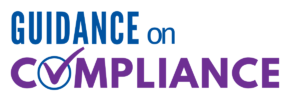Our world has continued to change since March 2020 when the COVID-19 pandemic and the Public Health Emergency (PHE) were implemented. Many of the rules and regulations outlined by the Centers for Medicare & Medicaid Services (CMS) are continuing to be altered, due to the continuation of the PHE.
The Medicare Benefit Policy Manual (MBPM), Chapter 1 houses the regulations that have traditionally governed Inpatient Rehabilitation Facilities (IRFs). On March 13, 2020, CMS issued blanket waivers that included new directives for IRFs, other Post-Acute Care (PAC) entities, and medical settings. The waivers support the care delivery of patient needs under the constraints of the COVID-19 virus. Since the 1135 Waiver initiation on March 13, 2020, CMS has made updates and modifications.
Note: As of [insert publish date], when this blog was published, the modifications related to the PHE are still in place. HHS has indicated the PHE will likely extend to the end of 2021. However, they will provide a 60-day notice prior to termination.
IRFs must understand the implication of the waiver for admission decisions and the documentation required to support the use of the waiver.
The medical record documentation must paint the picture of the circumstances surrounding the admission decision to support the use of the waiver. CMS has included the requirements for the use of modifiers if the waiver is used.
The critical variances for IRFs relating to clinical care delivery that is still supported by the 1135 Waiver include:
- The 3-Hour Rule Waiver (§ 412.622(a)(3)(ii)):
This waiver applies to all IRFs (freestanding and IRF units). It allows IRFs to admit patients that would not need or benefit from 3 hours of therapy per day. This applies whether a patient is admitted for standard IRF care or to relieve acute care hospital capacity. Often known as the “intensity” of care standard, delivering less than the intensity is currently allowed. - The 60% Rule Calculation:
The 60% Rule calculation also applies to IRFs. Traditionally, CMS has expected that 60% of the admissions would have one of the standard qualifying diagnoses. The requirement has been waived for those patients “admitted solely to respond to the emergency.” The decision to admit a diagnosis other than those in the qualifying diagnosis list should be identified in the medical record. - The Post-Admission Physician Evaluation (PAPE):
The PAPE is waived for all patients in all IRFs. The IRF can continue to perform this assessment as the information is critical to develop the plan of care and demonstrate medical necessity; however, it is no longer a mandatory requirement for being completed within 24 hours of admission. - The Use of Telehealth:
Telehealth is expanded with the waiver. The physicians can use telehealth to fulfill the three rehab Physician Face-to-Face visits and by therapists during the PHE. While telehealth may be utilized, CMS encourages physicians to continue to visit patients in the IRF face-to-face using necessary precautions. Therapists should also use precautions and treat patients individually on the premise as much as possible. - Remote Weekly Team Conferences:
Per CMS’ guidance, IRFs must continue to hold weekly interdisciplinary team meetings. During the PHE, the meetings can be conducted through virtual or electronic means. The documentation should explain the social distancing precaution.
The Medicare Administrative Contractors (MACs) are back reviewing documentation to support medical necessity and billing and coding submissions. Remember, documentation in the medical record must clearly outline the events leading to the admission decision and the care delivery.

